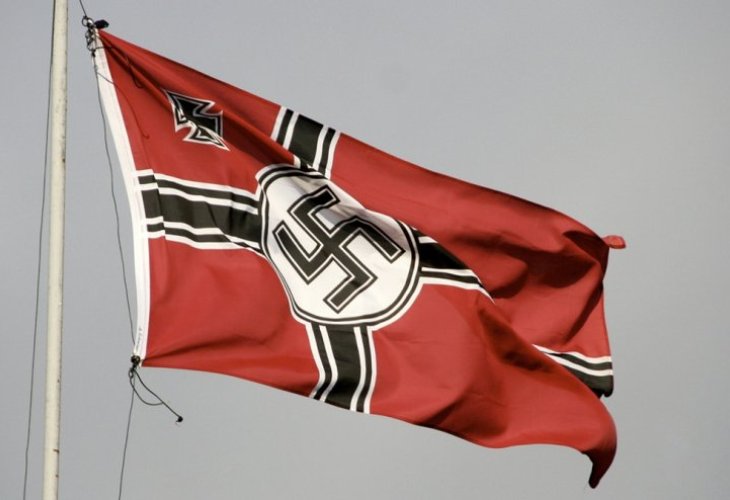Personal Stories
The Humble Choice That Saved a Life and Rebuilt Torah
Rabbi Shmuel Rozovsky gave up his position to his brother and it led him to safety and greatness in Israel.
 (Photo: shutterstock)
(Photo: shutterstock)The great Torah scholar, Rabbi Shmuel Rozovsky (22 Tevet 5673 – 27 Tammuz 5739), was Rosh Yeshiva (head of the yeshiva) at the famous Ponevezh Yeshiva in Bnei Brak. His deep and powerful Torah lectures drew many students, and his influence reached across the yeshiva world.
But long before he became a leader in Torah learning, a heartbreaking moment changed the course of his life.
On the 23rd of Adar II 5695 (1935), sadness fell over the Jewish community of Grodno. The city’s beloved rabbi, the Torah leader Rabbi Michoel Dovid Rozovsky, passed away. He left behind two sons: the older one, Rabbi Yehoshua Heschel, and the younger, Rabbi Shmuel.
A disagreement quickly broke out over who would inherit the position of Chief Rabbi. The community believed that although the rabbinate often passes from father to son, they had the right to choose which son would serve. Many community leaders wanted Rabbi Shmuel to take his father's place. But the family believed the position belonged to the eldest son, Rabbi Yehoshua Heschel.
To settle the matter, they turned to one of the greatest Torah sages of the time, the late Rabbi Chaim Ozer Grodzinski. Before the discussion even began, Rabbi Shmuel made a powerful decision. He traveled personally to Rabbi Chaim Ozer and told him, with full sincerity, that he didn’t want the position. He said that his brother, Rabbi Yehoshua Heschel, was more deserving and he tried with all his heart to convince Rabbi Chaim Ozer of this.
This was the first time Rabbi Shmuel and Rabbi Chaim Ozer met, but certainly not the last. A deep connection would grow between them.
Still, Rabbi Shmuel didn't stop there. Friends of the young rabbi later shared that during the debate over the appointment, they saw him humbling himself in unusual ways. He would walk through the town market and ask about prices at the vegetable stands, behavior that seemed beneath the dignity of someone being considered for a major rabbinical position. But Rabbi Shmuel did this on purpose. He wanted the townspeople to view him as less worthy of the job, to strengthen his brother’s chances of being accepted.
In the end, Rabbi Chaim Ozer ruled in favor of the elder brother. Rabbi Yehoshua Heschel was appointed as the new rabbi, and although the community officially accepted the ruling, their hearts were not fully at peace. They had wanted Rabbi Shmuel, and the tension was noticeable. Rabbi Shmuel felt it and it hurt him deeply. He couldn’t bear to see his brother receive honor while others still preferred him. In his great humility and righteousness, he made another selfless decision: he would leave Grodno and its surroundings completely. He hoped that by doing so, the people would forget him and fully accept his brother as their spiritual leader.
But such a decision was not simple. Rabbi Shmuel struggled over what to do. Torn between feelings and considerations, he decided to turn to a spiritual method known as the Goral HaGra, a lottery based on the teachings of the Vilna Gaon (the “Gra”), a respected Torah giant. The Goral is used only in serious cases of doubt, and the answer comes from a verse in the Torah.
The verse that appeared for Rabbi Shmuel was the famous command to Avraham Avinu (our forefather Abraham):
“And Hashem said to Abram: Go forth from your land, your birthplace, and your father’s house, to the land that I will show you. And I will make you into a great nation, and I will bless you…”
(Genesis 12:1–2)
Rabbi Shmuel took this as a clear sign. Just as Avraham left everything behind to follow Hashem’s call, he too would leave and head for the Land of Israel.
Years later, it became clear just how fateful that decision had been. Rabbi Shmuel’s humility and willingness to give up his rightful place didn’t just bring peace, it also saved his life. Had he remained in Europe, he might have been among the millions murdered in the Holocaust. But because he left, he survived and with him, a great light of Torah was preserved.
And though he gave up the rabbinate in Grodno, Rabbi Shmuel did not give up his mission to spread Torah. On the contrary, he became a towering figure in Torah leadership in Israel. As Rosh Yeshiva of Ponevezh, his shiurim (Torah classes) drew hundreds, and his teachings influenced the next generation of Torah scholars.
His noble soul and refined character didn’t just bring personal salvation, they helped rebuild the Torah world after the destruction of European Jewry.
Based on material from the 'Dirshu' website.

